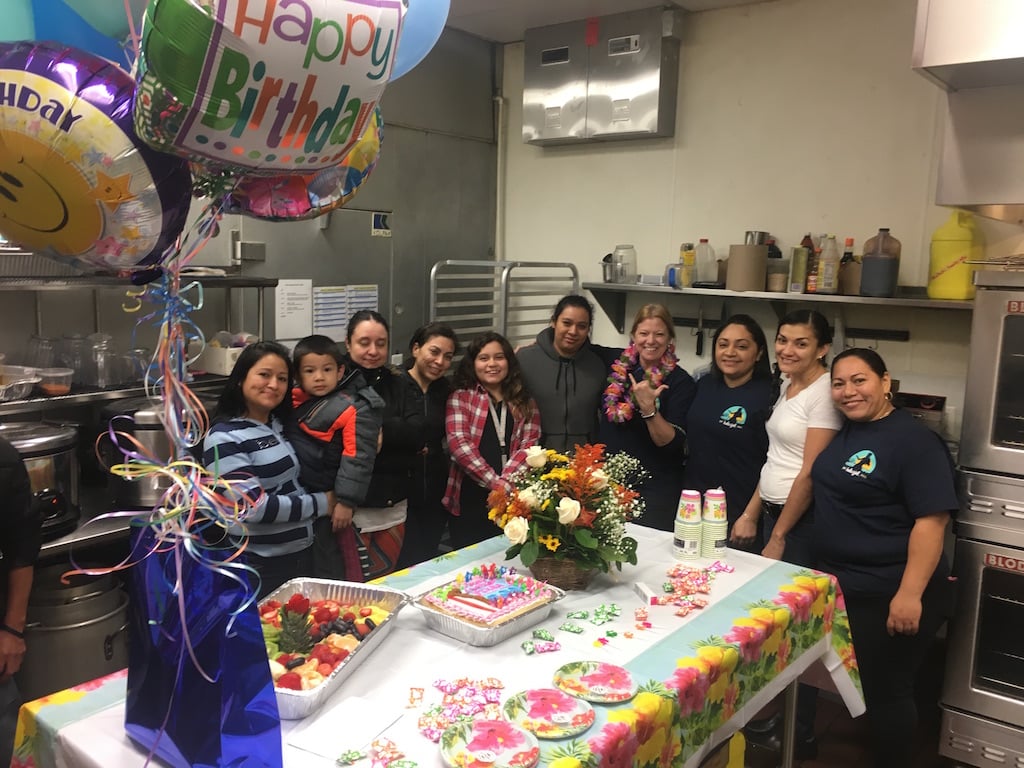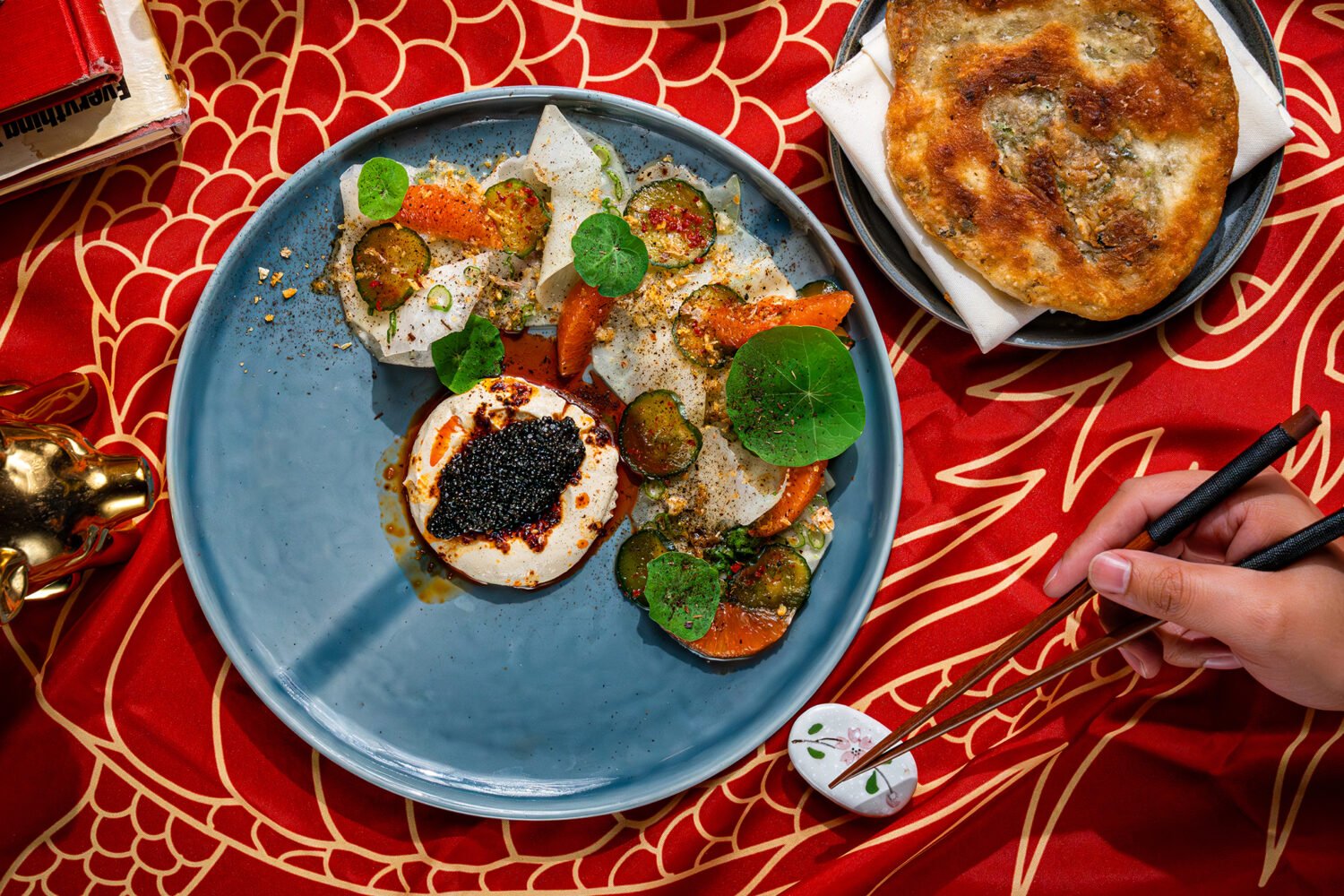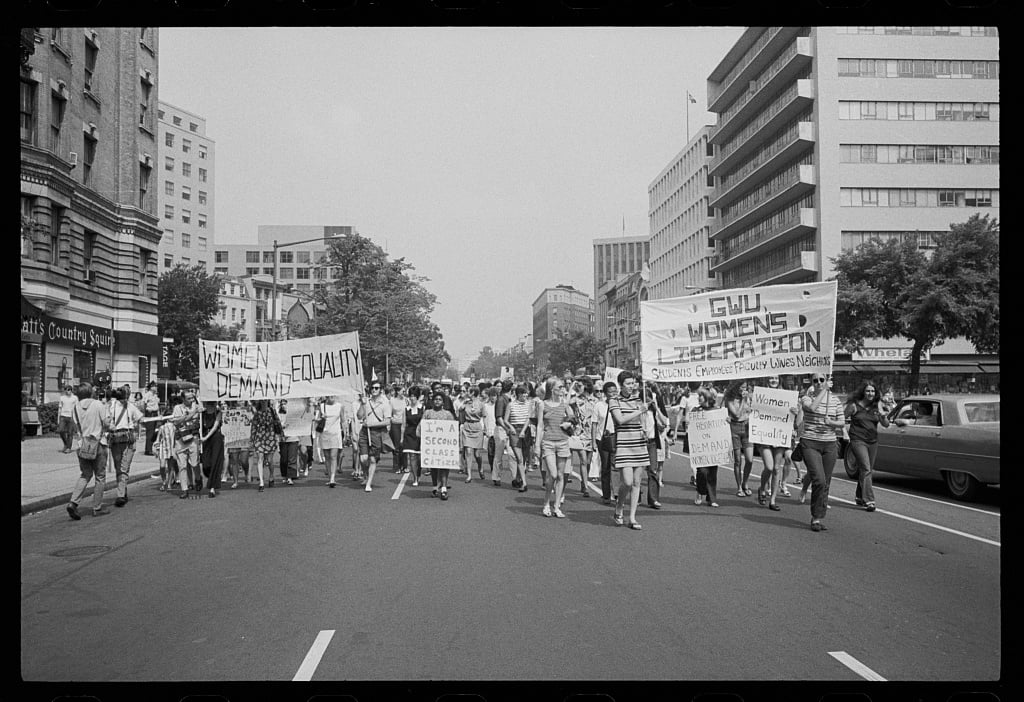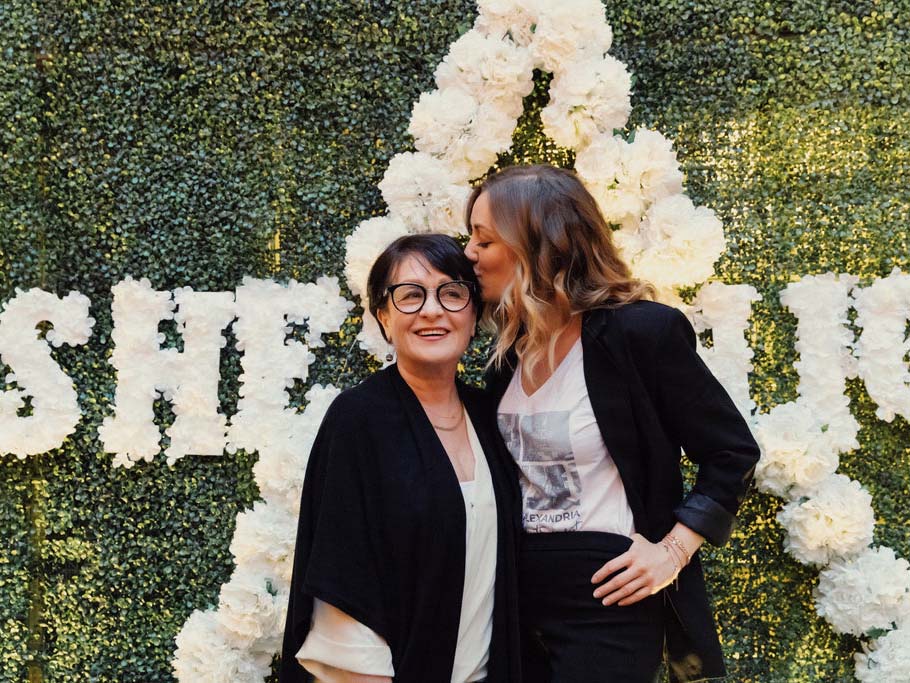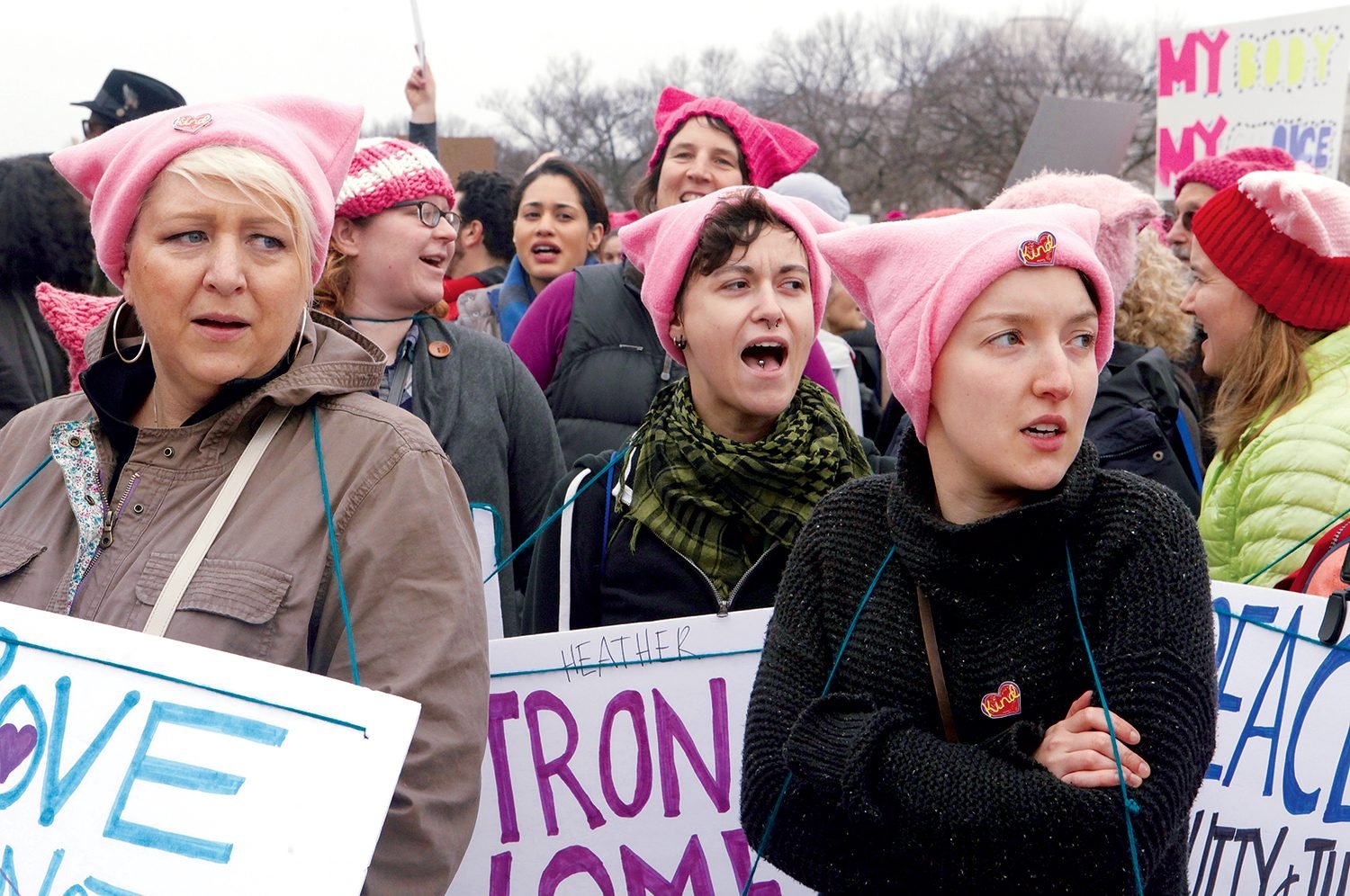There was nothing particularly notable about the makeup of Hula Girl‘s kitchen staff when Mikala Brennan first opened the Shirlington Hawaiian restaurant in November 2015. She had one or two “prep girls,” but the majority of cooks were men.
Employees came and went, then one day last April, Brennan looked around and realized something unusual: “Oh my God. My entire kitchen is women!”
To be fair, she now has two male employees—both dishwashers—but the kitchen continues to be female-dominated. That’s a rarity in the restaurant industry, and something worth exploring amid the “Day Without a Woman” protest happening today.
The shift wasn’t intentional (discriminating based on gender is illegal, after all), but it wasn’t totally accidental either. Brennan found a lot of the women who came to work for her had previously been relegated to cold stations or dessert. Over time, Brennan started promoting them to sauté or grill stations. “I just spent as much time as it took mentoring and training and kind of hugging it out sometimes with the girls,” she says. “They were scared, because they had never been given the opportunity.”
Restaurant kitchens don’t exactly have a reputation for being the most nurturing, and Brennan has dealt with the harassment and sexism first hand throughout her career. She recalls being cornered in walk-in fridges and grabbed by the breasts by “gross boys.” Other times, she says former coworkers would rub up against her a little too close when she was cooking on the line or make dirty comments. She believes the sexual harassment is one of the main reasons why women quit kitchens.
“The advice that we give to women, quite frankly, it’s terrible,” Brennan says. “We tell them just to toughen up and grow a thicker skin instead of dealing with the root of the issue, which is actually chastising the men in the kitchen.”
Brennan’s own restaurant hasn’t been totally immune from harassment. Early in Hula Girl’s existence, one employee was caught rubbing up against a female employee. The woman was terrified to say anything, but Brennan finally got the truth out of her. She fired the guy the next day. Another time, a male employee started making comments like “this is a man’s grill” a few days into his hire. The women weren’t having any of it, and he left shortly after.
“In a normal kitchen, you get all these guys that sort of gang up on the girls. Well, the girls ganged up on the guys, and they just really don’t tolerate what we like to call a ‘creeper.'”
Brennan’s female kitchen manager now helps her evaluate potential hires’ temperaments, particularly toward women. It doesn’t matter how talented they are if they’re jerks.
The end result, Brennan says, is a much more supportive, nurturing team environment, especially because so many of the women are moms. No one is trying to get ahead at the expense of someone else. Rather, the women have become friends, and even their kids hang out.
“It’s been something that’s so refreshing,” Brennan says. “I’ve never seen this in all of my years.”

